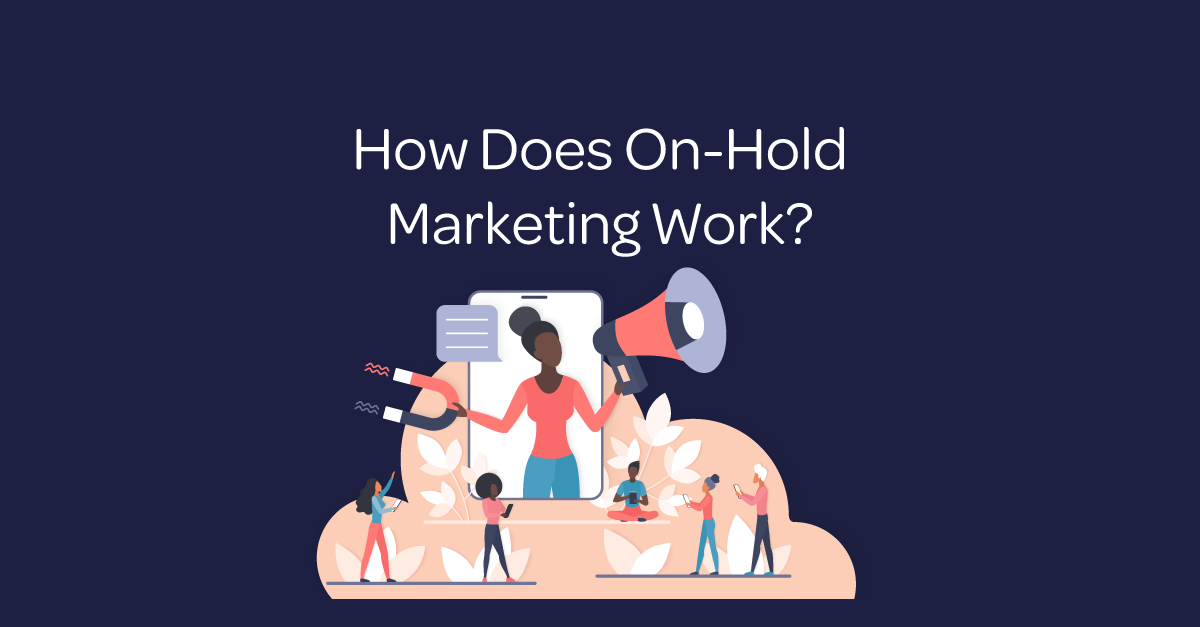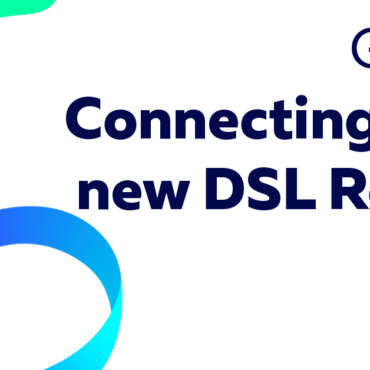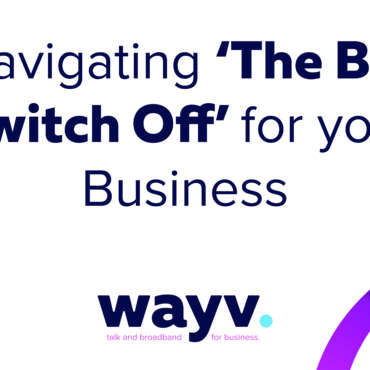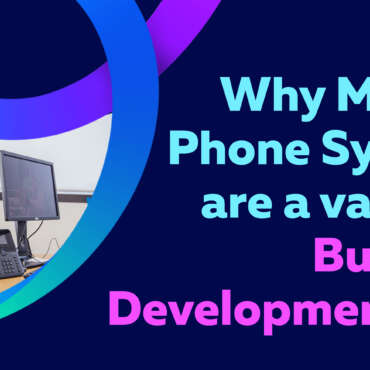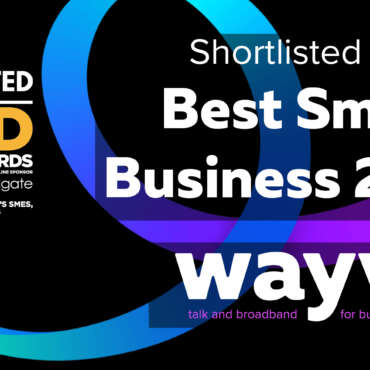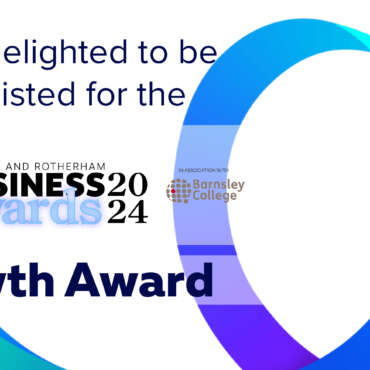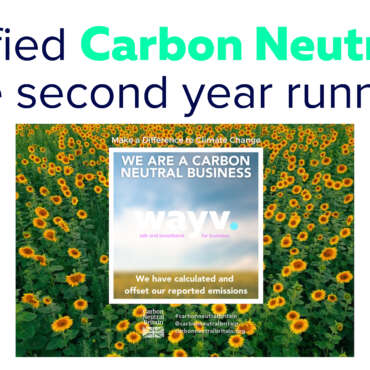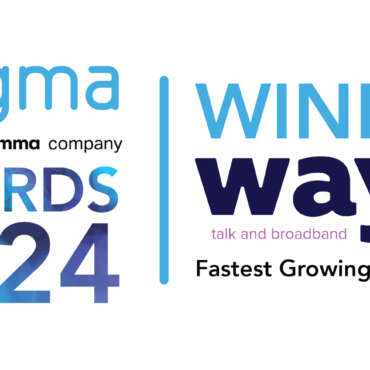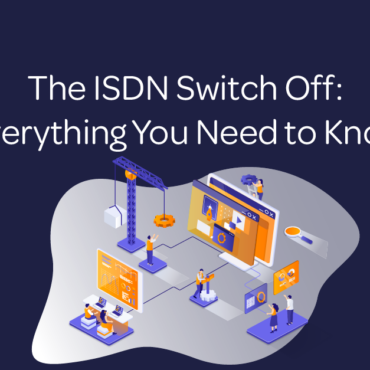Very rarely do you have 100% of your customer’s attention.
Customers are busy people and have short-attention spans. Therefore, you need to plan how you’re going to keep their attention, especially when they’re on the phone with you.
Luckily, wayv. has the answer for you: on-hold marketing.
Customers are busy people and have short-attention spans. Therefore, you need to plan how you’re going to keep their attention, especially when they’re on the phone with you.
On-hold marketing is the system you use to greet, help and direct customers when they call your business.
Usually, you will play music or an audio transcript for the customer to listen to as they wait for a receiver to pick up.
This is great, as it means customers won’t be sat in silence and are less likely to hang up on you!
Now, countless businesses use on-hold marketing. Why?
- It keeps customers entertained
- It’s a great marketing tool
So, if you’re interested in introducing on-hold marketing to your business strategy, you’ll find this blog to be useful – and there’s a lot to cover.
The Idea Behind On-Hold Marketing
Here are 2 interesting facts:
- Customers don’t like being left in silence
- Business managers want to increase their sales
This is why on-hold marketing was created to fill both gaps.
Think about when you call a company and nobody answers. When you’re left on-hold, it’s incredibly boring – in fact, watching paint dry is more fun. This is why it’s essential to fill the silence.
Back in the days of Muzak elevators, waiting music was introduced to do this. It has since progressed into the world of telecommunications, and is now commonplace whenever you ring a company.
Generally, you will be greeted by an automated voice, quickly followed by hold music as you get transferred to the right people.
If you decide not to use on-hold marketing, you’re risking a significant rise in dropped calls and unhappy customers. Naturally, this is something you don’t want to happen.
How Does On-Hold Marketing Work?
On-hold marketing works in several different ways.
It can either be done automatically (through on-hold music and automated voices) or by your physical employees when they’re speaking to customers.
For example, at the end of a conversation with a customer, an employee will follow instructions to recommend your latest products and sales before hanging up. Simple, right?
How Can My Business Use On-Hold Marketing?
There are lots of fun and exciting ways your business can use on-hold marketing to increase customer satisfaction and drive your sales numbers.
Let’s take a look at some good examples in detail.
Play some music.
Firstly, you should have some carefully selected songs or instrumentals ready for your customers to listen to.
The music you choose should be based on your brand’s personality.
For example, if you’re a fun, customer-focused business, your music should be up-beat and catchy.
When a customer is waiting, this will keep them occupied.
Reinforce your brand name and values.
Whether your customer is holding their phone to their ear or have got you on speaker phone, you have the perfect opportunity to reinforce your brand name and values to them.
Here’s something generic that you might say:
“Thank you for your patience. Our company believes in always putting the customer first, so we will be with you as soon as possible. Until then, please be patient.”
Essentially, you can build a stronger relationship with your customers and make your brand name stick in their heads.
Announce sales and events.
Next, you can use on-hold marketing to announce sales and events that you have coming up.
For example, let’s say you’re going to have a 50% off sale in-store on a Friday.
Rather than magically hoping that your customers will know about this, you should inform them whilst they’re on-hold. This way, they will be much more likely to show up.
Say hello to increased sales!
Inform them about special offers available on your website and in-store.
Similarly, if you have some exciting offers available on your website or in-store, then your customers need to know about them.
Whilst they’re waiting for a phone agent to pick-up the phone, you can play them an automated message along the lines of:
“All next week, we have some exciting discounts across our regional stores. Make sure to pop inside to find some bargains!”
Discuss the best products you have available and the incentives that come with them (e.g., 2-year warranty)
Lastly, you should use on-hold marketing to incentivise customers. Let them know about your best products and services and why they could care.
Sure, not every customer will be convinced, but you will get more sales as a result of this. 30% of customers make purchases through on-hold marketing, which is 3 out of every 10 people!
Can On-Hold Marketing Backfire?
Now, let’s address a question that’s probably at the back of your mind: can on-hold marketing backfire?
The short and sweet answer is yes – but only if you use it incorrectly.
Here are some tips on what to avoid:
- If a customer is really upset and is waiting for their problem to be resolved, it’s not a good idea to tell them about all the great offers your company has available. In circumstances like this, they should be handled with neutral on-hold music and nothing else.
- Make sure to provide customers with a predicted time lapse for when they will reach a customer service representative. If they are left on hold for over an hour with nothing but repetitive music and messaging, they’re going to be very angry!
Remember, customers hate poor customer service.
In fact, Americans are suffering from a culture of bad customer service, with an estimated 91% of customers saying they’ve had a poor customer service experience in the past 6 months!
So, upon implementing your on-hold marketing system, it’s essential that you bear this in mind. Remember, on-hold marketing is an excellent tool, but it must be used in the right moments.
How Do I Use On-Hold Marketing Effectively?
When you and your employees are doing the on-hold marketing yourselves, it’s important that you follow best practices so that you can influence your customers effectively.
Speak casually, yet professionally.
First of all, you and your team need to find the right balance between being casual and professional.
There’s a delicate line, so it might take some practice. However, once you nail it, you’ll be on track.
Remember, customer training is key here, so make sure that you use the call recording feature on your phone systems so that you can give them feedback.
Your professionalism stems from your dialogue. Make sure to avoid these unprofessional terms and phrases:
- “I’m not sure.”
- “We can’t help you with that.”
- “Please relax.”
- “Like…like…like”
- “I’m not in the mood today.”
- “We’ve never had this issue before, I’m not quite sure what to say.”
Even if you are unsure about something, this should never be made obvious to the customer.
Instead, you must stay strong and in control for them, as they’re looking to you to solve the problem.
Be concise with your points.
When you’re making key marketing points to customers, they don’t want to have their time wasted.
This is why you need to be concise and to-the-point, otherwise they will lose interest fast.
Ideally, you should begin with a question, such as:
“Would you be interested in hearing about our latest offers?”
If the customer answers yes, then you can provide them with a quick breakdown with instructions on what to do next (visit us in store, check out our website).
Be interesting.
Customers don’t want to be bored with terms and conditions along with other information that is of no use to them.
This is why you need to make your scripts interesting.
There should be key buzzwords in them that help to capture the attention of customers and influence them to act.
Timing is everything.
Lastly, timing is everything when it comes to on-hold marketing.
You must only market to your customers when the time is right. For example, if you’re in the middle of an important call where a customer wants their queries to be solved, it’s not a good idea to ask them if they’re interested in your brand-new product.
This will make a bad impression and likely lead to them becoming more frustrated.
Also, you should only hit your customers with offers relevant to them. Generally, a customer will find a seasonal sale more interesting than a small discount on an obscure (and irrelevant) product.
Where Can I Get an On-Hold Marketing System?
You can find the perfect VoIP phone system for your business with built-in on-holding marketing from Wayv.
Our VoIP system will allow you to:
- Provide better customer service
- Increase sales
- Boost your brand engagement when communicating with customers and clients over the phone
As well as on-hold marketing, you will also gain access to other features such as call recording, which will enable you to record and analyse your calls.
This is great for improving training quality and much more.
Conclusion
After everything we’ve covered, you now know everything you need to about on-hold marketing.
Moving into the future, on-hold marketing is going to continue to grow in relevance.
Less people will be visiting businesses in-store, and will instead be seeking customer service over the phone and via video consultations online.
This is why on-hold marketing is going to be a major force. It will drive your sales, boost your brand authority, and enable your employees to become experts in customer marketing.
Basically, there’s a lot to love about it.
To get the on-hold marketing system that’s perfect for your business, you need to use Wayv.
Our Knowledge Hub For SME Insights
Guide: Connecting your new DSL Router
Instructions for connecting your new DSL router
Navigating the Big Switch Off for your business
If you’re one of the estimated 75% of small to medium businesses still relying on traditional phone lines, read on to find out how to navigate the switchover.
No longer a utility – Why business phone systems are adding more value than ever
Phone systems now integrate with other business systems as standard, enabling a more streamlined approach to managing business communications.
Wayv Shortlisted in unLTD Business Awards 2024
Following on from our shortlisting in the Barnsley and Rotherham Chamber of Commerce’s Celebration of Business Awards, we’re…
Wayv Shortlisted in Chamber of Commerce Awards 2024
“We’re proud to be shortlisted in these awards alongside some fantastic local businesses. Our continued growth is testament…
Wayv Certified Carbon Neutral for Second Year
Wayv are delighted to have been certified carbon neutral by Carbon Neutral Britain for the second year running.
Wayv Named Fastest Growing Partner 2024
“An incredible achievement after what has been an incredible year for Wayv. Well done to our amazing team,…
The ISDN Switch Off: Everything You Need to Know
ISDN stands for Integrated Services Digital Network. It is a set of communication standards for transmitting digital data…



